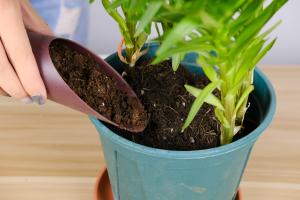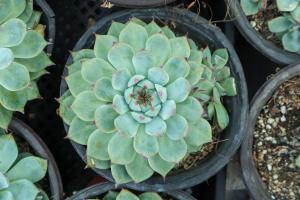Introduction
With the increase in popularity of indoor plants and gardening, plastic plant pots have become a ubiquitous item in homes and gardens. However, once these pots have outlived their use, disposing of them can be a challenge. Plastic waste has become a major issue, and finding ways to responsibly handle plastic plant pots is essential. In this article, we will explore some options for what to do with plastic plant pots.
Reuse
One of the simplest and most effective ways to reduce plastic waste is to reuse plastic plant pots. Depending on the size and condition of the pots, they can be used for a variety of purposes. Small pots can be repurposed as seed starters, pencil holders, or even as decorative organizers for small items. Medium to large pots can be used for storage containers or even as a base for an outdoor makeshift pond. Get creative! With a little imagination, the possibilities are endless.
Recycle
If reuse is not an option, the next best alternative is to recycle. Check with your local recycling facility to confirm that they accept plastic plant pots. If they do, ensure that the pots are clean and free of any soil or debris. Recycling plastic plant pots helps to reduce the amount of plastic waste that ends up in landfills or in our oceans. It also reduces the demand for new plastic products, which in turn limits the production of greenhouse gases associated with their manufacturing.
Donate
Another great way to reuse plastic plant pots is to donate them. Consider gifting them to friends or family members who are into gardening or to community gardens. Schools or non-profit organizations may also appreciate receiving plant pots, so be sure to ask around. Donating plastic plant pots is a great way to give back to your community and to help reduce the number of pots that end up in landfills.
Compost
If you are into gardening or have access to a composting program, composting plastic plant pots can be a viable option. However, keep in mind that not all plastic plant pots are suitable for composting. Look for pots that are labeled as biodegradable or made from compostable materials such as bamboo or coconut husks. These materials break down naturally in compost, leaving behind nutrient-rich soil. Be sure to check with your local compost facility to ensure that they accept these materials.
Conclusion
With a little creativity and effort, finding ways to responsibly handle plastic plant pots can be easy. By reusing, recycling, donating, or composting, we can help reduce the amount of plastic waste that ends up in our environment. Remember to always do research to ensure the proper disposal of plastic plant pots in your specific area, and encourage others to do the same. Every effort counts in the fight against plastic pollution.

 how many times do yo...
how many times do yo... how many planted tre...
how many planted tre... how many pine trees ...
how many pine trees ... how many pecan trees...
how many pecan trees... how many plants comp...
how many plants comp... how many plants can ...
how many plants can ... how many plants and ...
how many plants and ... how many pepper plan...
how many pepper plan...































